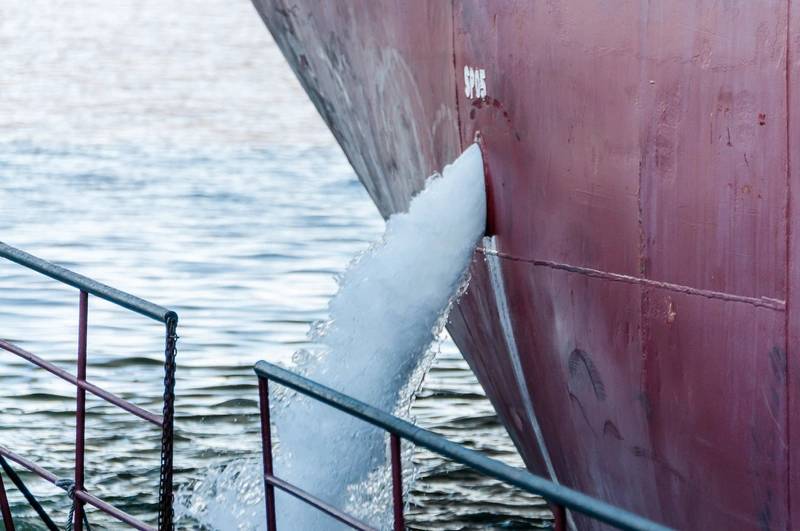EPA Settles Ballast Water Violation Claims
The U.S. Environmental Protection Agency (EPA) has settled with two shipping companies over claims of violations of EPA’s Vessel General Permit issued under the Clean Water Act.
Under the terms of the settlements, Swire Shipping Pte. Ltd. will pay $137,000 in penalties and MMS Co. Ltd. will pay $200,000 in penalties for claims of ballast water discharge, inspection, monitoring, and reporting violations.

The violations relate to Singapore-based Swire Shipping’s vessels, the Papuan Chief and the New Guinea Chief, which visited the Port of Pago Pago in American Samoa, and Lintan, which visited the Ports of San Francisco and Long Beach in California as well as other U.S. ports.
The EPA says Swire Shipping failed to: treat ballast water prior to discharging it into the ocean in a manner consistent with the compliance deadline; conduct annual comprehensive inspections; conduct annual calibrations of a ballast water treatment system; monitor and sample discharges from ballast water treatment systems; and report complete and accurate information in annual reports.
The settlement includes penalties of $67,075 for the Papuan Chief, $19,906 for the New Guinea Chief, and $50,019 for the Lintan.
The violations for Japan-based MMS Co. relate to the St. Pauli and Centennial Misumi. The EPA says MMS Co. failed to: meet ballast water limitations for biological indicators and biocide residuals in discharges at U.S. ports, including the Port of Richmond in California; conduct annual calibrations of ballast water treatment systems; monitor and sample discharges from ballast water treatment systems; and report complete and accurate information in annual reports.
The settlement includes penalties of $110,509 for the St. Pauli and $89,491 for the Centennial Misumi.
The EPA states: Vessel self-inspections are required as a means of identifying, for example, potential sources of spills, broken pollution prevention equipment, or other issues that might lead to permit violations. Self-inspections empower the owner or operator to diagnose and fix problems in a timely manner to remain compliant with the permit, and with U.S. federal law. Because the Clean Water Act relies on self-reporting of permittees, failures or delays in inspection, monitoring, and reporting violations are serious and undermine the permit program.
In addition, it is important that such discharges by ships be monitored to ensure that aquatic ecosystems are protected from discharges that contain pollutants. Invasive species are a persistent problem in U.S. coastal and inland waters. Improper management of ballast water can introduce invasive species or damage local species by disrupting habitats and increasing competitive pressure. Discharges of other waste streams regulated by the Vessel General Permit (e.g., graywater, exhaust gas scrubber water, lubricants, etc.) can cause toxic impacts to local species or contain pathogenic organisms.
